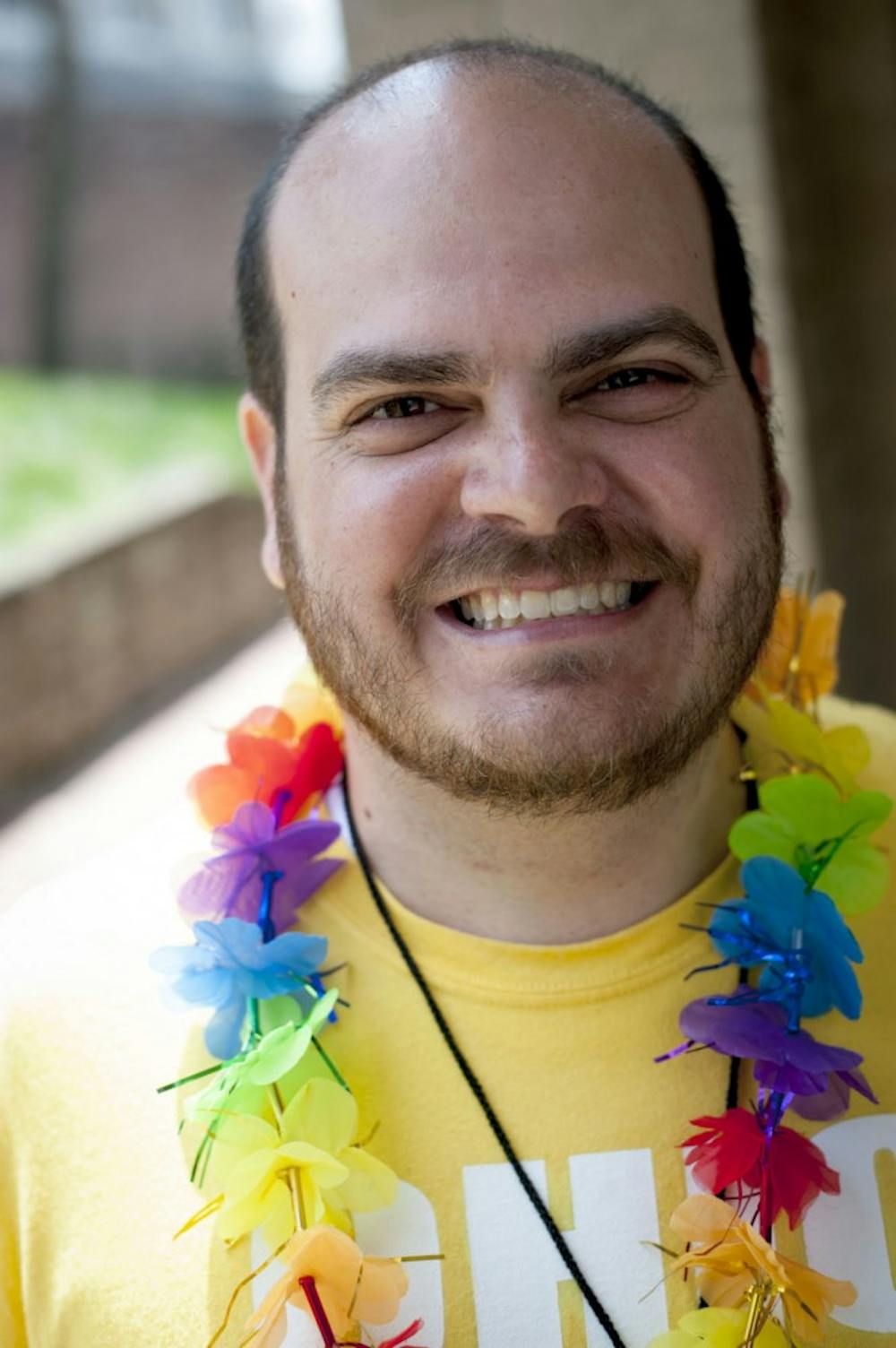The Director of the LGBT Center delfin bautista discusses several issues facing the trans community.
November is Transgender Awareness Month. Much like other identity-focused months, it is a time to honor and celebrate the contributions of trans-identified individuals throughout the world. The LGBT Center will be hosting Trans Education Week Nov. 16-20 and will be focusing on “transforming OUr dialogue” around the realities of trans people on and off campus. The center will also be holding a vigil Thursday, Nov. 19 at 7 p.m. in Galbreath Chapel in honor of International Transgender Day of Remembrance. As part of the month’s events, each week Query a Queer will answer questions related to the trans community in order to help our Bobcat Family better understand and embrace Bobcats who are also trans. Visit the LGBT Center’s website and/or Facebook page (and/or the center itself in Baker 354) to learn more.
What does transgender even mean?
When babies are born, doctors look at the genitals and decides which binary sex category they think the infant best fits. Baby’s born, doc takes a quick peek downstairs and stamps “male” on the birth certificate. That baby may grow up to identify as a boy/man, in which case he would be a cisgender boy/man. But that baby may grow up to identify as a girl/woman, in which case she would be a transgender girl/woman. Or that same baby may grow up to identify as a gender outside of the male/female binary, like genderless or genderqueer. Transgender and cisgender are words used to describe our genders in relation to what the culture told us we should be.
It has nothing directly to do with bodies, surgeries or hormones, but is about a person’s inner sense of being male, female or another gender. Gender identity is also not the same as gender expression, or the ways we express being a man, woman or something else. For example, cisgender women and transgender women can both be masculine, feminine or some mix while still being women. Cisgender and transgender people both have sexual orientations separate from our gender identities. Both can be straight, gay, bisexual, pansexual, queer or whatever orientation without invalidating their gender identity.
What is tranny?
T****y is a slur used to threaten, fetishize and/or dehumanize primarily trans women, and sometimes trans people who were assigned male at birth by a doctor, who identify as a gender other than male or female. I’m glad you asked the question, because it is important that no one but these two groups of transgender people use that word.
{{tncms-asset app="editorial" id="5c9e891e-7b4b-11e5-84a5-3b994aad054d"}}
What’s the big deal and issues with restrooms?
Gendered restrooms are potentially threatening spaces for transgender and gender non-conforming people, especially men’s rooms. Transgender and gender non-conforming people — and there is overlap — are faced with the risk of verbal harassment by other restroom users, businesses and sometimes even law enforcement, depending on local laws. That can be humiliating, invalidating and downright scary. Transgender people have much higher rates of urinary tract infections than the general population because many of us avoid public restrooms to protect ourselves to the detriment of our physical health and comfort. Trans women and people perceived as trans women face very high rates of violence, sexual assault and murder in restrooms. Not a single trans woman in America has ever been charged with any sort of assault or violence in a public restroom, yet some states and countries have implemented or are trying to enact laws to criminalize using a restroom that does not match legal documentation on the justification that trans women will rape cisgender women in restrooms. Locking, gender-neutral single-stall restrooms are essential for the physical and emotional safety of trans people. For a list of single occupancy restrooms at Ohio University, visit: https://www.ohio.edu/lgbt/universityresources.cfm (apologetic disclaimer, the list is not complete, so if you see any inaccuracies please email lgbt@ohio.edu).
delfin bautista is the director of the LGBT Center at Ohio University. Do you have a question relating to the LGBT community? Email them to lgbt@ohio.edu, or to oulgbtcenter@gmail.com, tweet @oulgbtcenter with #qaqueer, or post on the center’s Facebook page, oulgbtcenter (you can also private message).






